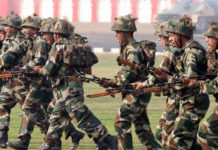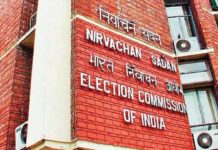 TOPIC – Assam discord: On BJP’s brand of identity politics
TOPIC – Assam discord: On BJP’s brand of identity politics
“The BJP’s kind of identity politics is difficult to sustain over the longer term”
A combination of welfarism, communalism and smart though daring alliances helped the BJP win a second consecutive term in Assam. The party and its allies, the Asom Gana Parishad (AGP) and United People’s Party Liberal (UPPL), won 75 of the 126 seats in the State. A 10-party alliance, or Mahajot, around the Congress-AIUDF axis turned out to be no match for the BJP. A third front of Assamese nationalists, the Assam Jatiya Parishad (AJP) and Raijor Dal, could win only one seat. The Congress and AIUDF have accused it of helping the BJP. The BJP performed well in Upper Assam, and the Barak Valley, though marginally weaker than its 2016 performance. With its newfound ally UPPL, the BJP outperformed the Mahajot, which had the Bodoland People’s Front (BPF) as a constituent in the Bodo region. The AIUDF-Congress alliance swept Lower Assam, but overall, they ended up with a net loss by joining hands. The BJP campaign focused on the imaginary prospect of AIUDF chief Badruddin Ajmal becoming the CM, mobilising two variants of backlash — from the Assamese nationalists and Hindu nationalists. The alliance question posed a dilemma for both parties. They had to choose between the disadvantages of not having a partnership and having one. The AIUDF has now blamed the underperformance of the Congress in Upper Assam as the reason for their defeat; the irony is that the Congress faced the brunt there for its tie-up with the AIUDF. The winners have their own curse. Communal polarisation in the State fanned by the acrimonious debate on the Citizenship (Amendment) Act has been further reinforced in the outcome. All eight Muslim candidates of the BJP, including a sitting MLA, lost. Of the 29 Congress MLAs, 16 are Muslims. The BJP has dismantled its minority cell in response to the outcome. The key strategist of the BJP, Himanta Biswa Sarma, who curated the party’s agenda, spearheaded its welfare schemes, and managed its alliance, has a rightful claim for the CM’s post. He is certainly more popular than the incumbent CM, Sarbananda Sonowal, in the 60-strong BJP legislature party. The BJP has managed to assemble the support from Assamese nationalists, and Hindu nationalists in a deft balancing act on the CAA, but that ambiguity is difficult to sustain. The party has also promised to revise the National Register of Citizens and exclude more ‘illegal’ residents from it. Assam is a border State, and it has numerous fault lines within its society. The BJP single-mindedly focused on the religious divide that earned it rich dividends. But a political order that excludes a third of the population in a systematic manner is no order at all. The BJP’s victory is built on a deeply divisive and combustive agenda. Before it turns into a whirlwind of strife and chaos, the party must act with political wisdom and douse the fire it has lit.
















